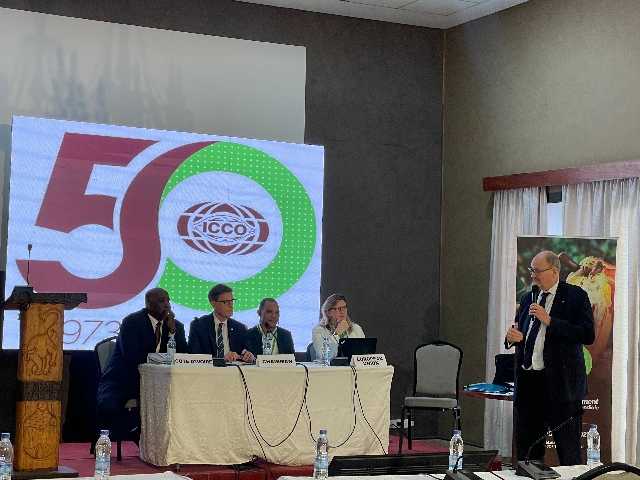ABIDJAN, Côte d’Ivoire – The International Cocoa Organization (ICCO) held the 108th session of its Council from October 2 to 6 in Abidjan, Côte d’Ivoire, under the chairmanship of Mr. Abel Fernandez of the Dominican Republic, during the same week as the Organization’s 50th anniversary celebration.
ICCO: the 108th session of its Council from October 2 to 6 in Abidjan
Throughout this meeting, held at the Palm Club Hotel in Abidjan in a 100% face-to-face meeting format for the first time after 3 years of remote participation, the Members of ICCO engaged in a productive exchange of views and made important contributions to analyze the latest developments in the global cocoa economy. Some of the key topics discussed during the week included:
• Election of a new Chairman of the International Cocoa Council, Mr. Rafael Soriano, Ambassador of Spain to Côte d’Ivoire
• Update on the next World Cocoa Conference to be held in Brussels, 21-24 April 2024.
• Update on the latest developments of the world cocoa market.
• Update of the Annex C (Fine Flavour Cocoa) of the International Cocoa Agreement, 2010
The next 109th International Cocoa Council will be held in April 2024 in Brussels, Belgium, following the 5th edition of the World Cocoa Conference to be held from 21 to 24 April 2024.
About the Organization
The International Cocoa Organization (ICCO) is an inter-governmental organization established in 1973 under the auspices of the United Nations and operating within the framework of successive International Cocoa Agreements. The ICCO is headquartered in Abidjan, Côte d’Ivoire.
The Organization comprises 52 Member countries, of which 23 are cocoa exporting countries and 29 are cocoa importing countries.
The ICCO seeks to promote and support the economic, social, and environmental sustainability of the cocoa value chain, and in particular to improve the living conditions of cocoa farmers.
The Organization acts as a center for knowledge and innovation in the world cocoa economy; as a platform for institutional cooperation to foster dialogue among its Member countries and between key stakeholders in the cocoa value chain; and as a source of technical assistance for its Member countries.














